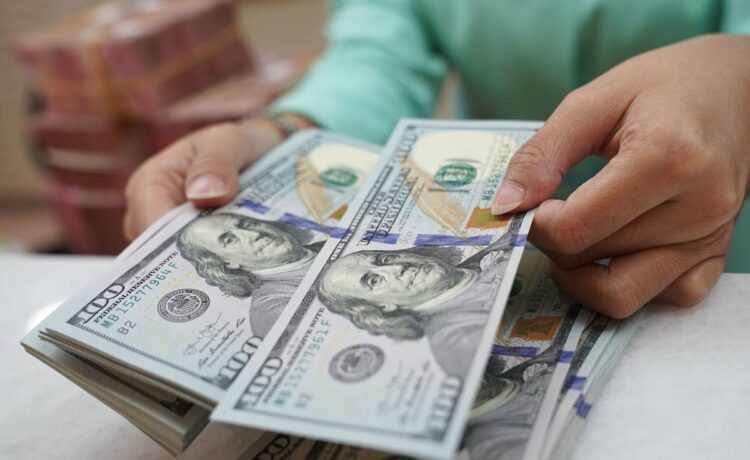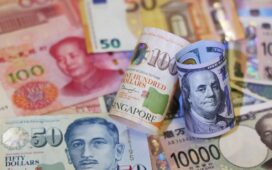(Bloomberg) — Asian currencies ripped higher against the US dollar Monday, extending a move that’s hurting exporters, weighing on equities and forcing central banks to intervene in the market to curb excessive gains.
Most Read from Bloomberg
Taiwan’s dollar surged the most since 1988, sending the nation’s benchmark stock index to its steepest slide in nearly a month. The offshore yuan climbed to its highest level in almost six months as exporters repatriated dollar earnings. The Hong Kong dollar held at the strong end of its allowed trading band for a second session. Meanwhile, the Indonesian rupiah recouped most of this year’s losses after slumping to a record low less than a month ago.
The volatility shows how an exodus from the world’s reserve currency can ripple through financial markets, as President Donald Trump’s shifting tariff policies fuel concern over a US recession. Last week, speculative traders became more bearish on the dollar than at any time since September, in a sign of growing reluctance among investors to hold US assets.
Asian currencies including the yen and yuan are benefiting from a mix of repatriation buying and as alternative investments amid the “sell America” wave. The strategy appeared to remain intact even as both Beijing and Washington seemed to be softening their stance on the trade war, with President Trump at the weekend signaling he’s open to reducing import duties on Chinese goods to spur trade.
“The natural way out of a lot of this trade tension is via the dollar balloon deflating,” said Brad Bechtel, global head of foreign exchange at Jefferies. Therefore, “loading up on a little downside for dollar versus Asia might make sense.”
Asia’s foreign-exchange market has seen wild swings the past two days, with a Bloomberg gauge of the region’s currencies surging the most since 2022 on Friday, while an indicator for returns of emerging-markets foreign-exchange closed at an all-time high. Moves extend on early Monday trading, with the Asia Dollar Index at its highest in six months.
Strength in emerging market currencies can help attract foreign inflows and make its imports cheaper, but it can hurt exporters by making their goods less competitive globally.
Exporters’ Selling
Taiwan dollar jumped about 5% on Monday, leading a two-day rally in regional currencies. The gain was driven by speculation that exporters and retailers were aggressively selling the greenback, betting on further declines. The surge in currency exchange requests prompted Cathay United Bank to place controls on its trading platform.





